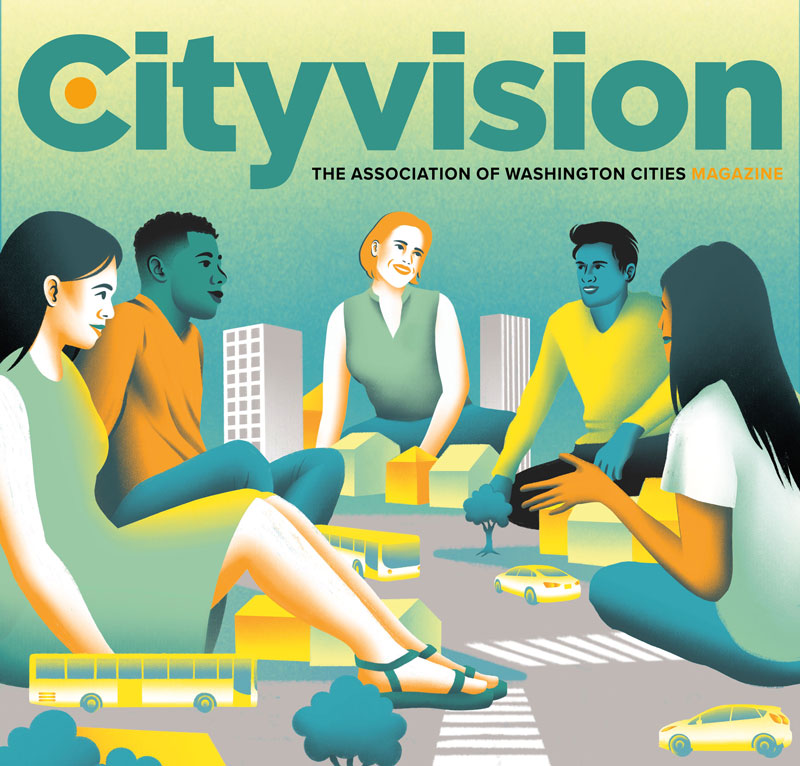
Fall 2024 | Download PDF
From the President
It’s well established that we are experiencing a crisis in our civic discourse—and those of us serving in local government are far from immune. We’ve each experienced or witnessed online harassment, aggressive behavior on the sidewalk or in the grocery store aisle, and abusive attacks from some who engage with our work at city hall and in council chambers.
At times it can feel like we are in an unwinnable situation. Why step forward to suggest a new project or innovative solution to an issue when the risk of hostility and per¬sonal attacks is so great? At times, it may seem easier to simply carry on, keep your head down, or throw some blame to those who got us into this situation.
Easier in the moment, perhaps, but I firmly believe that we stepped up to the job of local leadership because we want better. We believe in the power of local residents banding together to do amazing things for their communities, and we believe that when we search for common ground, we can overcome the challenges that divide us.
As leaders in our cities and towns, we have the opportunity to help break through the noise and negativity, foster better dialogue, and set the conditions to move us all forward. The focus of this fall 2024 edition of Cityvision follows that theme as we focus on how communication strengthens leadership—including examples of lifting up voices that were previously unheard, engaging with community to build new energy to solve old challenges, accessing people’s love of where they live to spark innovation and engagement, and taking a consensus-building approach to resolve intractable challenges.
We have a lot of work to do, but we are the right people for the job. From the smallest, most rural cities and towns to the largest urban cities, we all strive to elevate our communities and improve the lives of our residents. By improving how we engage with each other, modeling a better approach to civic discourse, and treating each other with respect, the cities and towns of Washington will continue to provide the foundation for a strong state and lead all of us forward.
I hope you find strength and inspiration in this issue, and in dialogue with each other. It is my honor to join you in this journey.
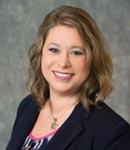 Sincerely,
Sincerely,
Amy Ockerlander
Mayor, Duvall
President, AWC
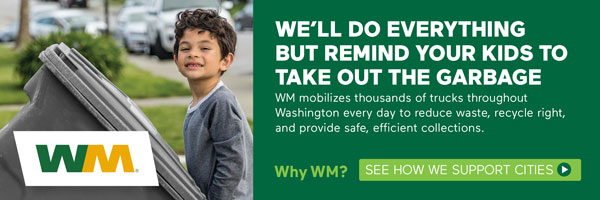
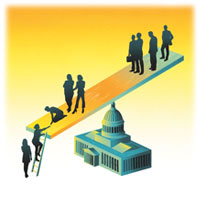 Progress report
Progress report
A statewide academy works to create gender balance in Washington’s local leadership
For decades, women holding leadership positions in local government across the country hovered at 14%. The Northwest Women’s Leadership Academy, sponsored by the Washington City/County Management Association, is working to make local government better by achieving more gender-balanced leadership teams in cities and counties throughout the state. More

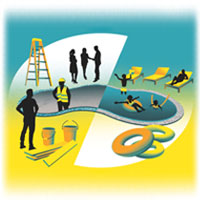 Pro tested
Pro tested
AWC board member, elected official, and PR professional Jillian Henze on why every city needs a communications strategy that works in good times and in bad.
Henze knows that rallying public support around a project is key. She shares her ‘secret sauce’ for doing just that—a four-pronged approach she learned while getting her Accreditation in Public Relations—along with how this strategy is helping bring the community together. More

 Urban/rural addition
Urban/rural addition
From 2014 to 2023, the state’s population increased by 14.54%. From 2023 to 2024, Washington cities saw a 1.25% increase in population. Check out which cities are posting the greatest population growth by number and by percentage. More
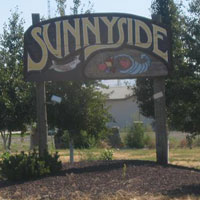 Freedom of speech
Freedom of speech
Sunnyside introduces interpretation services at public meetings to make local government more inclusive and welcoming for the city’s Spanish-speaking community
City council meetings in Sunnyside look—and more importantly, sound—a little different these days. Since May, the city has been offering Spanish interpretation services at council meetings. More
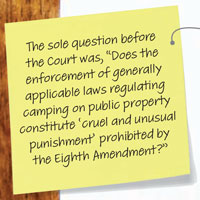 Noted
Noted
Supreme Court of the United States: City of Grants Pass, Oregon v. Johnson, et al.
Opinion of the court. More
 The Question
The Question
What advice do you have for fellow electeds on best practices for communicating with constituents?
Hear thoughts from three current and former communications professionals: Councilmember Patti Belle of Lakewood, Councilmember Tracy Taylor-Turner of Auburn, and Councilmember Paul Cocke of Sedro-Woolley. More
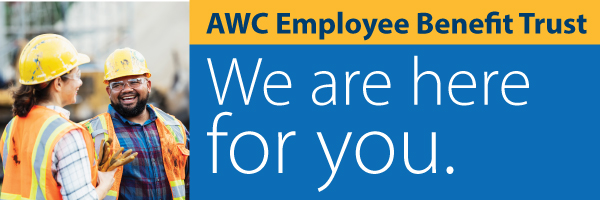
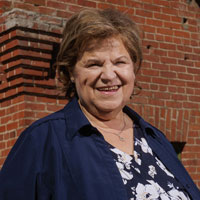 Double duty
Double duty
Micki Harnois on lessons learned from working as a clerk/treasurer in one small town, while serving as an elected official in another
Micki Harnois, AWC Board member, Rockford Councilmember, and Malden Clerk/Treasurer, on lessons learned from working in one small town, while serving as an elected official in another. More
 Cities love
Cities love
The secret of unlocking & unleashing the untapped potential of civic pride
Since its publication in 2011, Peter Kageyama’s For the Love of Cities has become a must-read for local electeds nationwide. The author and urbanist has worked with several Washington cities, including Kenmore and Sedro-Woolley, to help them embrace and leverage the things that make them unique. More
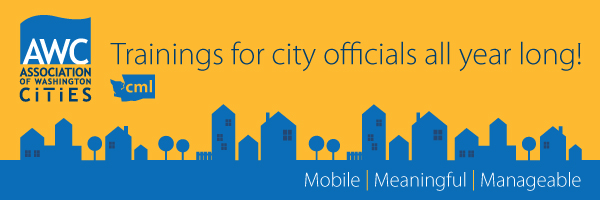
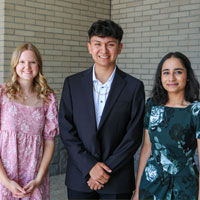 Young and with heart
Young and with heart
CQC scholarships: A practical tool for engaging youth in city governance
The CQC scholarships are an important tool for cities to promote youth engagement in government, identify and support young leaders in their communities, and build a passionate and engaged workforce for the future. As the government that’s closest to the people, local leaders have the opportunity to inspire and attract community members across a diversity of ages, interests, and experiences. More
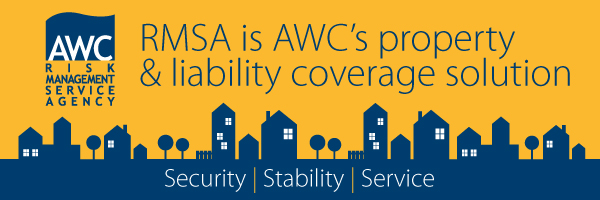
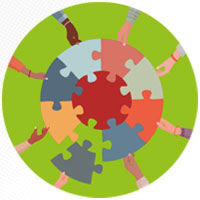 Civil discourse
Civil discourse
Finding common ground, for the common good
While we see partisan divides at the federal and state level, city leaders are seeking ways to bridge the divides in their communities—divides in understanding and empathy that have driven wedges not just between parties, but between family members and friends. More
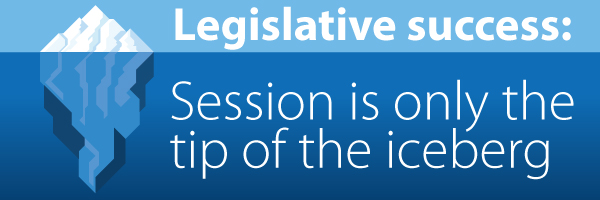
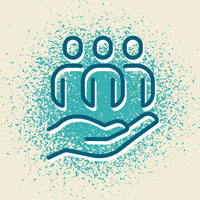 The art of alternative response
The art of alternative response
How Washington cities are forming new partnerships to better serve individuals in crisis
Across the state, cities are taking the lead on this critical issue by forming partnerships with neighboring cities, counties, fire districts, nonprofits, and other organizations to make alternative response programs happen. What used to be siloed work between cities and outside groups is now a coordinated effort to provide services to individuals in need. More
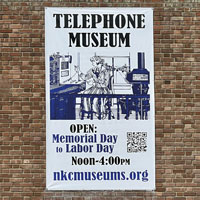 Time capsules
Time capsules
Monuments to communications technology of yesterday and tomorrow
Few remember that Cle Elum was the last municipality in Washington to move from a human-powered switchboard to rotary dial telephone service, but the 1918 brick building that once housed the town’s switchboard and staff now serves as the Telephone Museum. More
